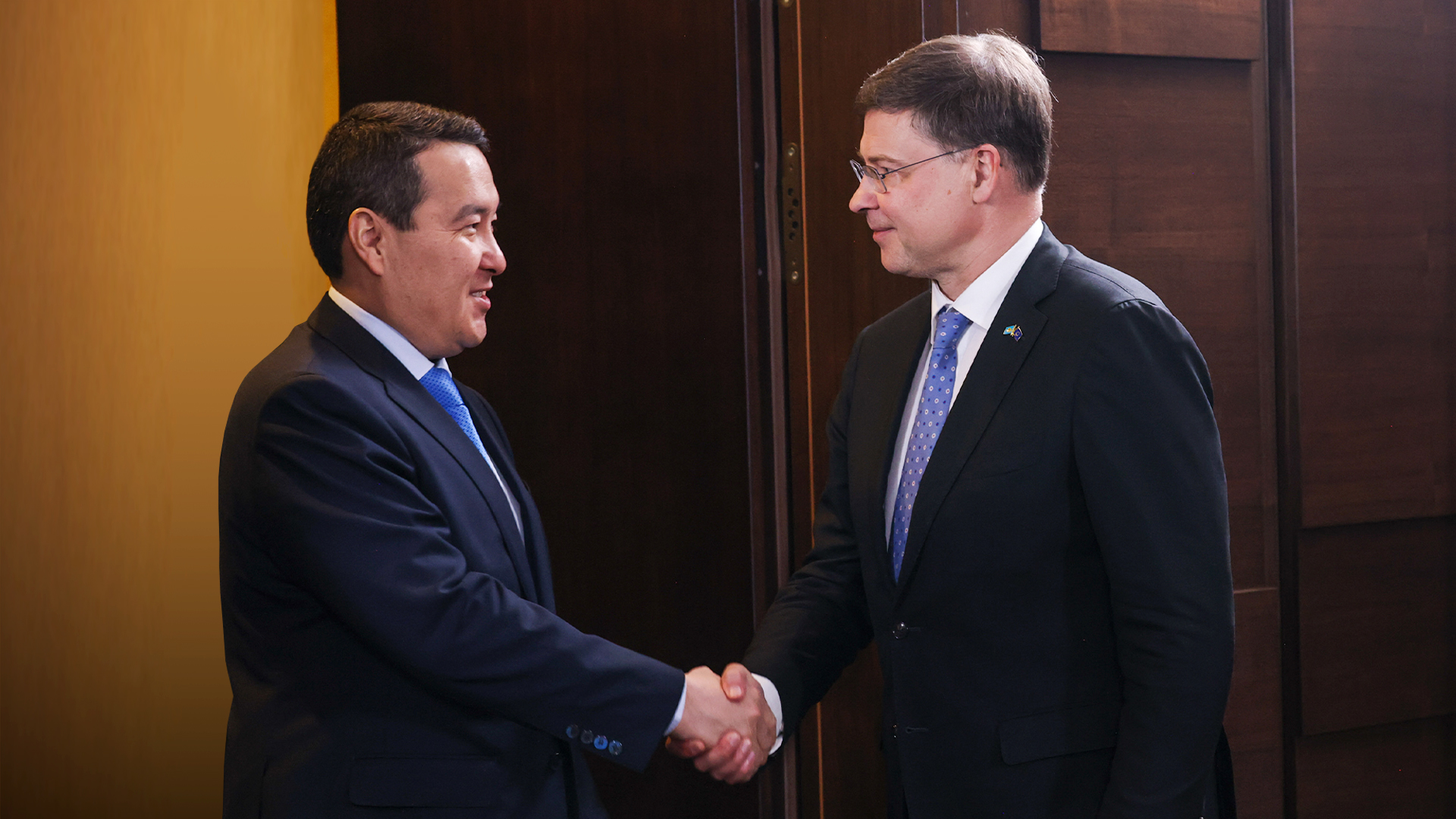ALMATY – Kazakhstan and the European Union signed the EU-Kazakhstan Cooperation Facility Financing Agreement on implementing economic projects worth 9 million euros ($9.7 million) at the second EU-Central Asia Economic Forum held in Almaty on May 19, reported the Prime Minister’s press service.

Alikhan Smailov and Valdis Dombrovskis. Photo credit: primeminister.kz.
According to Kazakh Prime Minister Alikhan Smailov, the EU is one of the country’s largest and major trade partners, accounting for approximately 30% of Kazakhstan’s foreign trade. In 2022, the trade turnover between the two sides increased by more than 38% to around $40 billion.
With a 12.5% growth to $10 billion recorded in the first three months of this year, the country is gearing to expand its export range to Europe on 175 commodity items worth approximately $2.3 billion.
“We prioritize the qualitative development of cooperation with the EU and support the mutual commitment to progressively strengthen Kazakh-EU interaction in a spirit of trust and respect,” the Prime Minister said.
Smailov added the investment cooperation between Kazakhstan and the EU is reaching a new level, emphasizing the country’s interest in tapping all available opportunities for its further expansion.
Last year, the volume of direct investment from the EU in Kazakhstan’s economy rose by almost 23% to $12.5 billion, a record high for the past decade.
Valdis Dombrovskis, the European Commission Executive Vice-President for an Economy that Works for People and Trade Commissioner, highlighted the fast-paced development of Kazakhstan-EU relations facilitated by the Enhanced Partnership and Cooperation Agreement.
The Memorandum of Cooperation on sustainable raw materials, batteries and renewable hydrogen value chains has also contributed to this achievement, he added.
A ceremony of approving the roadmap for the implementation of this document, which was initially signed by Smailov and EU Commission President Ursula von der Leyen at the UN Climate Change Conference of the Parties (COP27) last year, took place at the end of the second EU-Central Asia Economic Forum.
Dombrovskis outlined the outcomes of the forum, including adopting EU financial guarantee programs for Central Asia, strengthening cooperation on digital connectivity, organizing an investors’ conference later this year with a focus on transport and connectivity, preparing a new Prosperity Program, measures to improve the business climate in Kazakhstan and Uzbekistan, and increasing the European Investment Bank’s presence in the region.
Dombrovskis noted it is necessary to attract investors to work in the region on new routes and opportunities for transporting goods to eliminate bottlenecks in transportation and help develop infrastructure.
“We can build a win-win cooperation, which will lead to greater prosperity in the Central Asia region,” he said.
The EU intends to make a strong positive impact in Central Asia through the Global Gateway Initiative, the EU’s worldwide strategy to invest in infrastructure projects and establish economic partnerships.
Approximately 40% of the initial 700 million euros ($755.5 million) funding under this initiative is dedicated to investments in hard infrastructure.
The first part of another regional initiative on Digital Connectivity will be adopted by the end of this summer, with an envelope of 20 million euros ($21.5 million).
The Global Gateway deliverable provides satellite connectivity in the region through Earth stations, a special type of infrastructure, targeting good governance promotion in the digital sphere.
This summer, the EU also plans to adopt a first action worth 20 million euros ($21.5 million) on a regional initiative on water, energy, and climate change aimed at improving water-energy resource management and increasing investments to facilitate this transition.
